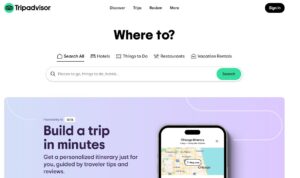In today’s tech-driven world, software and apps play a pivotal role in our daily lives. From smartphones to computers, we rely on these digital tools for various tasks. But have you ever wondered what sets software and apps apart? In this article, we’ll break down the fundamental differences between software and apps, providing you with a clearer understanding of these essential components of the digital realm.
Understanding Software
Let’s start by demystifying software. Software is a broad term that encompasses programs, applications, and instructions that run on a computer or device. It’s essentially the backbone of your device, making it functional and capable of performing tasks. Think of it as the engine of your car – you may not see it, but it’s the powerhouse behind everything.
Types of Software
Software comes in various forms, including:
Operating Systems (OS)
These are the foundational software that manage hardware resources and provide a platform for other software to run. Examples include Windows, macOS, and Linux.
Productivity Software
These applications help you complete tasks efficiently, such as word processors (Microsoft Word), spreadsheets (Excel), and presentation software (PowerPoint).
System Software
This category includes utilities like antivirus programs, disk management tools, and device drivers, which ensure your device runs smoothly.
Advantages of Software
The benefits of the software are substantial:
- Flexibility: You can install and uninstall software based on your needs.
- Upgradability: Software can be updated to fix bugs and add new features.
- Customization: You can tailor software settings to suit your preferences.
- Functionality: Software enables your device to perform a wide range of tasks.
Exploring Applications (Apps)
Now, let’s dive into the world of applications or apps. An app is a specific type of software designed for a particular purpose, often intended for use on mobile devices like smartphones and tablets.
Types of Apps
Apps are as diverse as software and can be categorized into:
Mobile Apps
These are designed for mobile devices and can be downloaded from app stores. Examples include social media apps like Facebook and productivity apps like Evernote.
Web Apps
Web applications run in a web browser and don’t require installation. They include online email clients, document editors, and more.
Desktop Apps
Desktop applications, like Microsoft Office Suite, are installed on your computer and are not browser-based.
Benefits of Apps
Apps offer unique advantages:
- Portability: You can use apps on the go, thanks to mobile devices.
- Specialization: Apps are tailored for specific tasks, enhancing efficiency.
- Offline Use: Many apps can function without an internet connection.
- User-Friendly: Apps are designed with user experience in mind.
Key Differences
Now that we’ve explored software and apps individually, let’s pinpoint the key differences between them.
Functionality
Software tends to be more comprehensive in functionality. It can encompass a wide array of capabilities and often serves as a platform for various apps. Apps, on the other hand, are typically designed for specific, focused tasks.
Accessibility
Apps are highly accessible due to their presence on mobile devices, making them readily available wherever you go. Software, while versatile, may require a computer or specific hardware.
Development
The development process also differs. Creating software often involves complex programming and may require a dedicated team. In contrast, apps can be developed by smaller teams or even individual developers, making them more agile in terms of updates and improvements.
Use Cases
The use cases for software are extensive, from running an entire operating system to managing databases. Apps, on the other hand, excel in tasks like communication, productivity, and entertainment.
User Experience
User experience is crucial in both software and apps. However, apps are designed with a more intuitive and user-friendly interface, given their specific focus. Software interfaces can be more complex due to their broader range of functions.
Conclusion
In conclusion, while software and apps are closely related, they serve distinct purposes and have unique characteristics. Software acts as the foundation, providing a wide range of capabilities, while apps offer specialized functionality, often with an emphasis on user-friendly interfaces. Understanding these differences can help you make informed choices when selecting and using digital tools in your daily life.
FAQs
1. Can an app be considered software?
Yes, an app is a type of software, but not all software is an app. Software is a broader term that encompasses various programs and applications.
2. Are all apps available on both mobile and desktop devices?
No, not all apps are available on both platforms. Some apps are designed exclusively for mobile devices, while others have desktop versions or web-based counterparts.
3. Can software be used offline like apps?
Some software can be used offline, depending on its purpose. Operating systems and productivity software often have offline functionality, while web-based software requires an internet connection.
4. Are apps easier to develop than software?
Apps are generally easier and quicker to develop than comprehensive software. The focused nature of apps allows for smaller development teams and faster iterations.
5. Which is better: software or apps?
The choice between software and apps depends on your specific needs. Software is versatile but can be complex, while apps offer specialized functionality and user-friendly experiences. Consider your requirements when making a decision.


